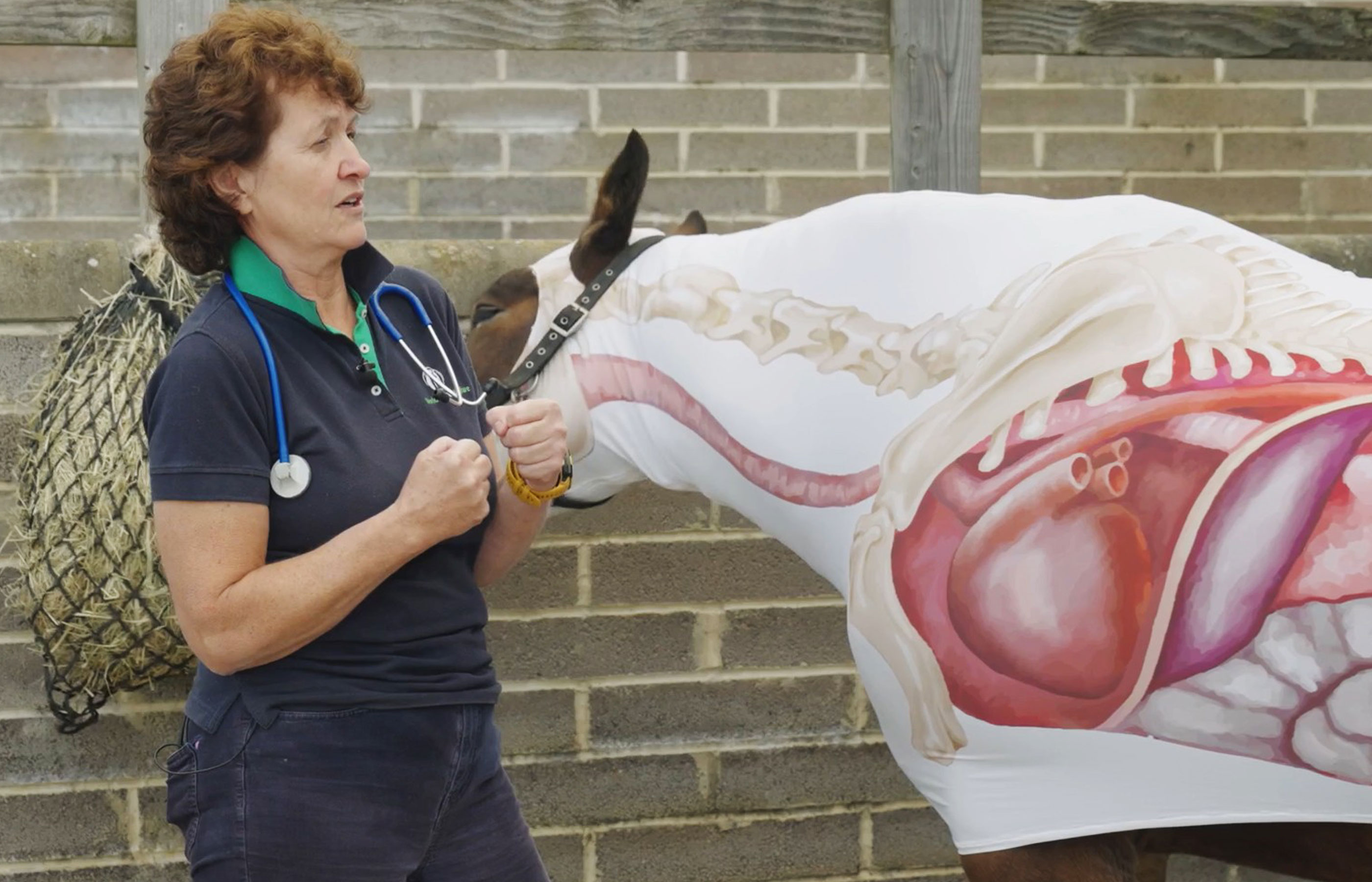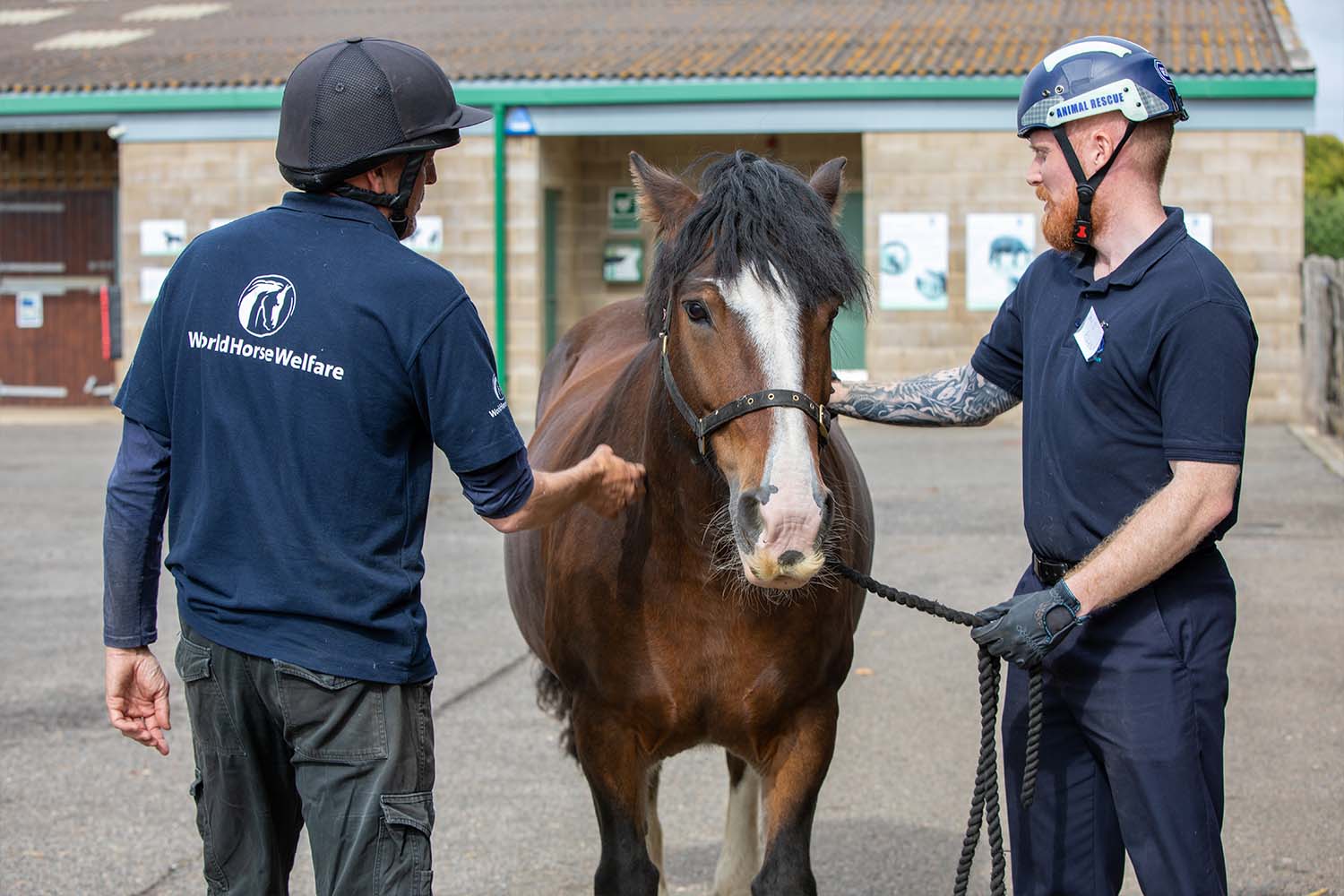Exploring how the heart and lungs of a horse keep up with everything we ask of them
The fifth episode of 'Horses Explained' is full of gems of knowledge and tips owners can use to improve their horses' respiratory health.
Posted on 12/08/2025

The fifth episode of ‘Horses Explained’ is packed full of gems of knowledge, from explaining the unique way the horse’s body is primed to make them an incredible athlete to the simple changes owners can make to improve their horse’s respiratory health. Equine vet Dr Sarah Coombs joins presenter Nicole O’Malley to explain, in accessible terms, how the horse’s heart and lungs work, as well as sharing easy-to-action tips. The episode is now freely available on our Education YouTube channel.
For anyone who’s ever wondered how their horse has the capacity to spook and flee at speed from a standing start, Dr Coombs explains how the horse is uniquely adapted to do this. “The horse has massive lung capacity so that the horse can go from standing around to seeing a predator in the distance and going straight off into a gallop,” she says. “Part of the reason they can do that is because they’re so well adapted in their cardiac and their respiratory systems.”
As well as sharing accessible insights into how the horse’s heart, blood vessels, and lungs work, Dr Coombs shares essential tips that owners can use every day to support their horse’s health. It’s vital for owners to get to know what their horse’s normal pulse and respiratory rate is, so Dr Coombs demonstrates how to use a stethoscope to check a horse’s heart rate, as well as showing a couple of pulse points that can be used.
When checking a horse’s breathing, Dr Coombs notes that someone getting up close to them can change the horse’s respiratory rate, so maintaining a bit of distance is helpful – checking from over the door rather than going into the stable, for example. “Stand back and watch how their flanks move [to see how they’re breathing],” she advises. “It should be regular, and even, and steady. Again, if you get used to looking at your horse and how your horse breathes normally, it’s really useful if you start to wonder if something’s not quite right one day.”
The episode highlights to owners that they can keep their horse’s lungs healthy simply by the way they feed them, with Dr Coombs suggesting they start with “the very best [quality] hay you can afford”. If owners are unsure how to check if hay is good quality, “don’t be afraid to pull it out and sniff it and look at it,” advises Dr Coombs. “You may think you’re not an expert on hay but, you know, if you smell it and it smells nice, it’s alright. If you smell it and it doesn’t smell nice, it probably isn’t alright. It’s as simple as that, really.”
The next episode of Horses Explained covers hormones, with vet and endocrine specialist Andy Durham. The remaining episodes in the series are:
- 22nd August: Reproductive System – with equine vet and reproduction specialist James Crabtree
- 29th August: Hooves – with farrier Jay Tovey
- 5th September: Whole Horse – with vet and equine behaviour specialist Gemma Pearson
All the ‘Horses Explained’ videos released to date can be found on our Horses Explained page.
Topics
Related News

You’re not imagining it, your horse really does read your mood
The third episode of 'Horses Explained' explains the emotions horses experience, how they learn, how stress affects them, and much more.

Charities combine strength for the benefit of horse welfare
Staff at Hall Farm and Penny Farm welcomed groups of new RSPCA recruits for training.
Recommended Blog Posts

How we’re taking steps to make our rescue and rehoming centres more environmentally sustainable
With the welfare of the environment, horses and people closely interlinked, simple changes can make a big difference.

Post Olympic reflections on equestrian sport
We all have the power and the responsibility to move towards more ethical and evidence-based equestrianism.

Tracking horse movements across Europe
Find out why accurate records matter for horses on the move.
Enjoy reading stories like this?
Join over 65,000 other horse lovers and sign up for our email newsletter

Join over 65,000 other horse lovers and sign up for our email newsletter
Sign me up now